"Data is the New Oil" - The Alpha, Beta and Omega of Postmodern Wealth Creation - Part II
【Summary】“Data is the New Oil” The Alpha, Beta and Omega of Postmodern Wealth Creation

Cities such as Los Angeles are addressing problems with housing, traffic, the cost of living, crime and safety. The cars of the future and the whole de facto urban experience will somehow intertwine with all of this newfangled technology. The new paradigm will lead to an embarrassment of riches for those able to get out in front of the curve. They'll be making their data practical and available. Cities are "for everyone" and should be safe for cyclists and skateboarders as much as for drivers. Efficiency in terms of properly utilizing space is a key to the betterment of the cities of tomorrow. Somehow, a better quality of life might well emerge for all of us, as the smog of New Delhi and Beijing gives way to EV-induced "blue skies forever."
The computers the Pentagon could only dream of in the 1950's are now common home appliances capable of the most elite industrial espionage. Chances are that your future car's onboard computer will be a million times faster than the computer used by the Apollo 11. You'll be touching one of your mobile devices at least 5,000 times per day, and perhaps many more. Your mobile devices will continue to be amongst your most prized possessions, and being out of touch with them already constitutes a crisis of major proportions for many Americans. That's not good in the event that space junk or another archetype 1859-style "Carrington Event" takes out the world's satellites and communications systems all at once. In the aftermath of such a scenario, some say ninety percent of the world's population would be wiped out within one year – meaning "The Year of Living Dangerously … Without Electricity."
We were also told that automobile ownership could decrease on a personal level. Already you can buy a "subscription" to a certain type of car if you live in a certain building. There will be more "ride-sharing." Cybersecurity will be paramount as noted in the panel discussion led by Booz Allen Hamilton. People will rely more on "experiences" and "stories" rather than "things" to give meaning to their lives. Big Data will also help Major League Baseball fans better enjoy The Hot Stove League, as exemplified with this random yet highly data-driven post.
Virgin was offered as an example of a company in tune with the future – diversifying into music, recreation and even space travel. Over half of all shopping journeys already include the use of a mobile device. Over 75 percent of consumers know what kind of model they wish to buy before they go to an automobile dealership. Over 60 percent say they would do it all (buying a car) on the Internet if they could. Between 40 and 60 percent of American consumers would like a "Virtual Reality" (VR) demonstration of the car they wish to buy before finalizing the purchase. We were told Macy's is closing another 100 stores and that grocery stories are seeing their products bought less and less as people order more food to be delivered to their homes. These are the hallmarks of an economy in transition regarding the delivery of goods and services.
Attendees also heard from a representative hailing from Amazon. He said we should, "Proceed and be bold." Ironically, Winston Churchill sent a one word reply to Shackleton and his crew before they sailed for Antarctica. That word was "PROCEED."
Corporations have indeed begun to "proceed" with a new business model in which "Data is the new oil." There's "anticipatory inventory." Food and consumer packaged goods may soon be delivered to your house by commercial drones. CD's are being replaced by the live streaming of music. Flying cars and commuters dropping off commercial packages as they travel to and from work might also be a part of your autonomous driving future. The law of induced demand will apply to the new archetype. There are over 100 traffic fatalities in the United States every single day – which when compared to 5,000 abortions per day – doesn't sound like a lot. The first and last mile of your daily commute is mostly liked to be automated. A strange looking shuttle bus named "Ollie" made an appearance at the event to offer a little inkling of what's ahead for us.
The BRICS nations were on hand at MobilityLA. – Brazil, Russia, India, China and South Africa. Taken one by one, each of the BRICS nations has something remarkable to offer the global economy. China recently unveiled the world's largest deep space telescope (larger than 500 American football fields), launched the world's first quantum satellite, and boasts over 1.3 billion consumers. India also features over one billion in terms of human population.
Consider that both China and India possess populations that are highly keen on trying out fully autonomous vehicles. (Only 2 - 3 percent of those living in China and India say they have zero interest in trying out such a car.) Brazil is an emerging economy, has a large population base, and can unearth a major treasure trove of natural resources. South Africa is similar to Brazil in regard to natural abundance; including cobalt, titanium, diamonds, gold and other precious metals. Russia has been a technological giant going back to the days of Sputnik and the "Czar Bomba," the largest atomic bomb ever exploded on the planet.
What would happen if the BRICS nations combined their intellectual, industrial and natural resources to create the world's ultimate autonomous vehicle? This very notion was recommended to the panel during a live Q & A session by this writer. (LoBaido.) The panelists felt this was in interesting question which had thus far not been sufficiently explored. Perhaps one day's we'll see a "BRICS Future Vehicle" dominating the market – even besting those currently rolling off of the robotic assembly lines in Silicon Valley – the Mecca of future cars.
Attendees at this mega-event were also told that companies, cities and consumers need to ask the right questions about what technology can do. The American cartoon "The Jetsons" was bandied about on stage. The 1939 "Futurama" was also discussed. The idea of a "Hyperloop," we were told, was first suggested in 1867 – only seven years after the Carrington Event.
The film "Blade Runner," (the favorite all-time film of the aforementioned supermodel, whose name by way is Kara) was another ancillary cultural product of Hollywood openly discussed at MobilityLA 2016. The film, set in 2019 Los Angeles, "Couldn't have been more wrong [about the future]." Some attendees openly recalled the wild antics of Sean Young (a starlette who appeared in "Blade Runner.")
And if drones can deliver death and carnage to nations such as Somalia, where food security is a high-level issue, then maybe those same drones can be refitted to deliver you dinner from Pizza Hut. We face a choice between "The Jetsons" and "Max Max," the latter of which depicted mutants roaming the post-apocalyptic Australian Outback wearing NHL ice hockey pads over the outsides of their clothing (no one really knows why), and sporting Geiger counters as they desperately search for fresh water and fresher croissants. As no city is an island, if we work together (meaning public-private partnerships) we can prevent the dystopian nightmares of Blade Runner (with apologies to Kara), Children of Men or even Mad Max from becoming our postmodern reality. An existential fear exists that such scenarios might actually happen.
Ultimately if "Data is the new oil," then the Alpha, the Beta and the Omega of postmodern wealth creation may well reside in the minds and imaginations of the elites feted at AutomobiltyLA 2016. They are the same geeks (as defined by Anthony Michael Hall in John Hughes' epic film "Sixteen Candles") who, as Kara said, "have four eyes (because many sport glasses to assist their vision) and seven figure incomes."
Again, referring to the Harvard Business Review:
"Pay will … be a factor. A good data scientist will have many doors open to him or her, and salaries will be bid upward. Several data scientists working at start-ups commented that they'd demanded and got large stock option packages. Even for someone accepting a position for other reasons, compensation signals a level of respect and the value the role is expected to add to the business. But our informal survey of the priorities of data scientists revealed something more fundamentally important. They want to be "on the bridge." The reference is to the 1960s television show ‘Star Trek,' in which the starship captain James Kirk relies heavily on data supplied by Mr. Spock. Data scientists want to be in the thick of a developing situation, with real-time awareness of the evolving set of choices it presents."
For 2,000 years one of the world's greatest religious traditions stated; "The meek shall inherit the Earth." Before that day dawns, it would appear that "The Geek shall inherit the Earth."
-

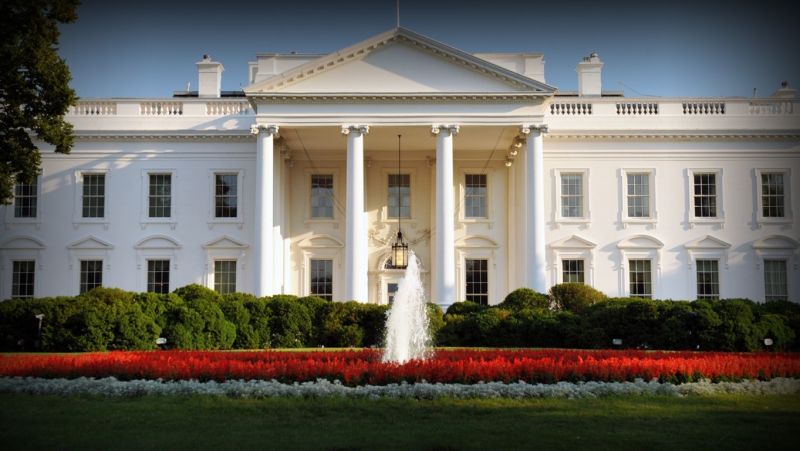
What will a Trump Presidency mean for self-driving cars?
-

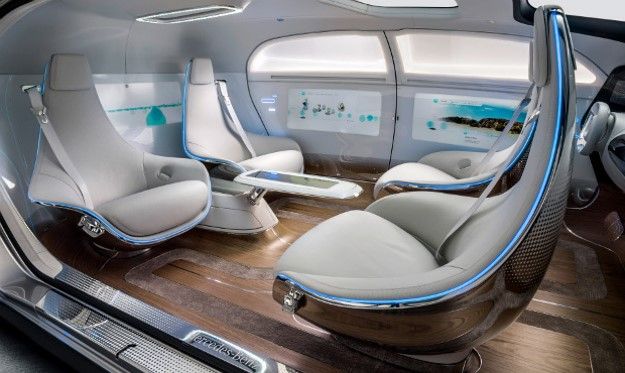
Driverless Cars – an anti-social future in the making?
-

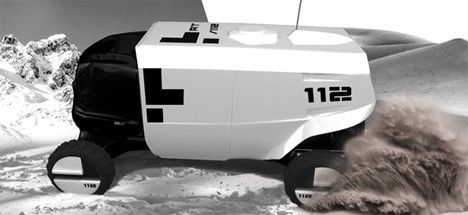
Ambulance + Tank =’s a new generation of emergency vehicle technology
-

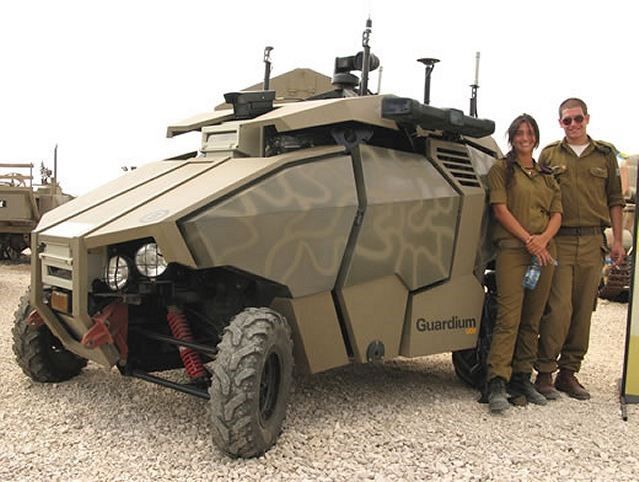
The Israeli Army’s new autonomous vehicle – a look at the battlefield of tomorrow
-

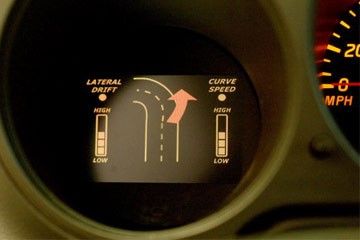
Top 10 Newfangled Car Safety Technologies
-


The Fall Leaves of Yosemite – Celebrating 100 Years of U.S. National Parks
-

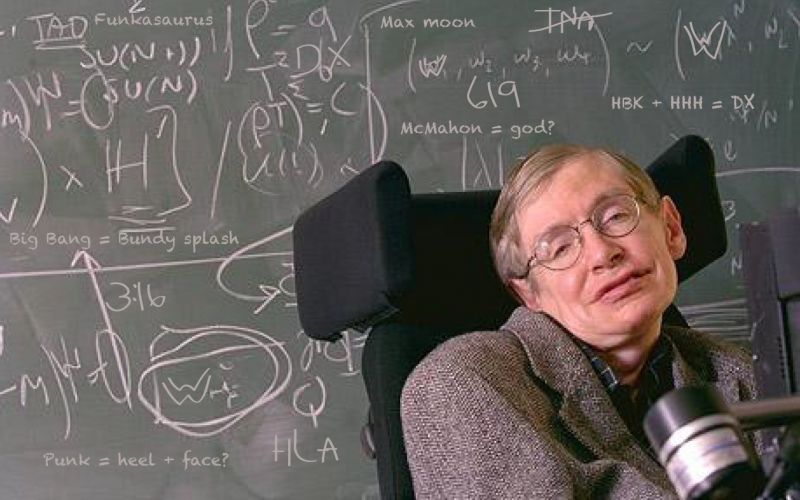
Stephen Hawking, Robotics and Our “Dangerous Point in Human History”
-


Do auto manufacturers or tech companies file the most patents?
- The Wind Beneath My Wings "Altamont Wind Farm"
- Is mankind living in a computer simulation? Part Ⅱ
- “Data is the New Oil” - The Alpha, Beta and Omega of Postmodern Wealth Creation - Part II
- Rabban Bar Sauma’s trek from China to Rome a key to world history (Part II)
- A Brief History of the Internet
- Managing the Transition to Self Driving Cars
- Rabban Bar Sauma’s trek from China to Rome a key to world history (Part I)
- The Lost Legion of Crassus
- XPeng Motors Valued at Over $8.4 Billion Files for U.S. IPO, the Company is Backed by Alibaba and Xiaomi
- “Data is the New Oil” - The Alpha, Beta and Omega of Postmodern Wealth Creation - Part I











 About Us
About Us Contact Us
Contact Us Careers
Careers